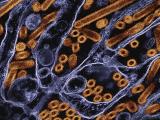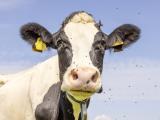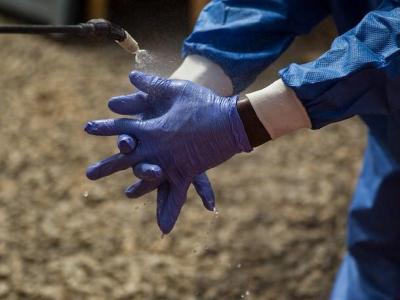Jan 13, 2005 (CIDRAP News) – The rapid spread of avian influenza across Turkey in recent days has generated criticism of the country's response to the disease and concern that the virus may become too well-established to eradicate any time soon.
H5N1 avian flu has been found in birds in 11 of Turkeys' 81 provinces and is suspected in 14 more, Turkish Agriculture Minister Mehdi Eker said yesterday. In addition, 18 human cases have been reported, of which four have been recognized so far by the World Health Organization (WHO).
The United Nations Food and Agriculture Organization (FAO) warned yesterday that the disease could become endemic in Turkey and that it poses a serious risk to Turkey's neighbors.
"The virus may be spreading despite the control measures already taken," Juan Lubroth, senior FAO animal health officer, said in an FAO statement.
Turkey's first poultry outbreak of avian flu was reported near the northwestern town of Balikesir early in October. The disease resurfaced in mid-December at the other end of the country, in Igdir province, near the Armenian border. The outbreak was confirmed as avian flu on Dec 26, according to a Turkish report to the World Organization for Animal Health (OIE). The first two human cases were reported on Jan 4.
Joseph Domenech, the FAO's chief of veterinary services, criticized the pace of Turkey's response. "Their detection was not early enough, so the virus was able to spread for weeks," he said, as quoted in a Jan 12 New York Times report.
The FAO said Turkey's neighbors should get ready to apply surveillance and control measures and to make sure the public is well informed about the risk.
Entrenchment of the virus in Turkey carries high risks because of the country's location on the doorstep of Europe and on bird migration routes to Africa, Domenech said.
Turkish officials have denied they were slow in responding to the outbreaks, according to an Agence France-Press (AFP) report yesterday. Eker said culling of poultry began immediately after infected birds were reported Dec 15.
But according to the New York Times story, local residents said authorities "waited for weeks" to investigate the outbreaks that began in mid-December.
United Nations officials said yesterday that Turkish authorities were now taking the problem seriously, according to a Jan 12 New York Times report. Dr. Marc Danzon, WHO regional director for Europe, called the government's current measures "correct and proper." Speaking at a news conference in Ankara, he said there was no reason to avoid travel to Turkey.
Turkey will soon get some financial aid for its avian flu battle, according to reports today. The European Union (EU), worried about the outbreaks in Turkey, pledged 4 million euros (about $4.8 million) to help Turkey fight the virus, AFP reported.
The EU also announced today its intention to grant up to 80 million euros (about $100 million) to help developing countries fight avian flu. The pledge is to be formally announced next week at a conference of donor countries in Beijing. The meeting is expected to draw officials from 90 countries and 25 international organizations, according to AFP.
Also today, Eker, the Turkish agriculture minister, said his country would receive $35 million under a World Bank Program to improve its "technical capacity" for fighting avian flu, an AFP report said. He said the money includes $15 million in loans and the rest in grants.
See also:
Jan 11 FAO statement
http://www.fao.org/newsroom/en/news/2006/1000208/index.html
European Commission map of avian flu outbreaks and human cases in Turkey
http://disasters.jrc.it/AvianFlu/Turkey/



















